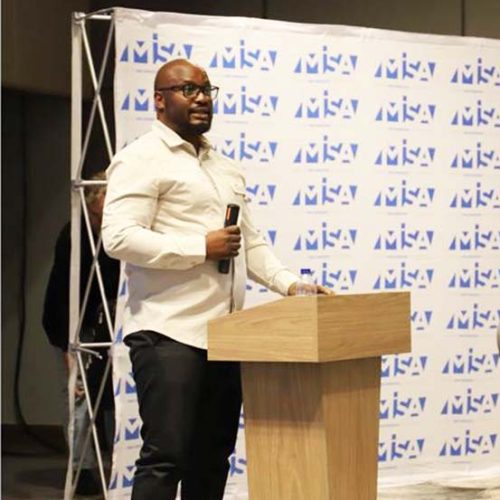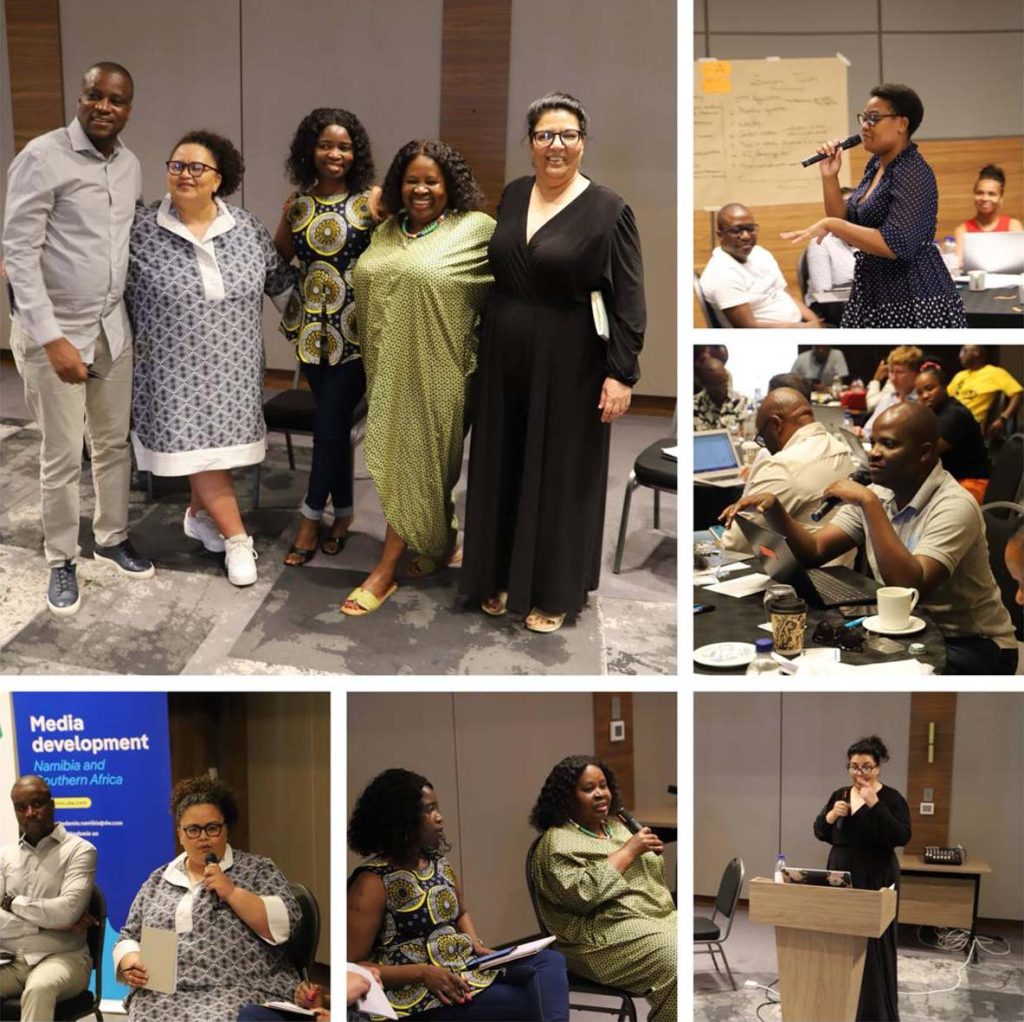By Risco Lumamezi

Regional Director of the Media Institute of Southern Africa (MISA), Dr. Tabani Moyo, has called for stronger collaboration and solidarity among media and civic organisations across Southern Africa to safeguard press freedom.
He made a clarion call during his keynote address at the 2025 Spaces of Solidarity (SoS) Meeting in Windhoek on Tuesday.
Marking the forum’s fourth anniversary, Dr. Moyo reflected on the achievements and challenges in defending Freedom of Expression across the SADC region. saying that “As a people, we have every reason to be proud of our historic efforts in establishing a collective agenda in response to the challenges affecting expression in the region,” he said.
He reminded delegates of Namibia’s symbolic role in advancing media freedom through the Windhoek Declaration of 1991 and the Windhoek+30 Declaration of 2021.
“It is even more historic for Namibia, the birthplace of the Windhoek Declaration on Diverse and Plural Media and its successor, Windhoek +30 Declaration: Information as a Public Good,” he added.
Dr. Moyo warned that Southern Africa’s media landscape is under severe strain. “Southern Africa has never in its history faced such a crossroads,” he cautioned.
“From global funding cuts to rapid technological change, climate impacts, and the fragmentation of progressive forces, our media ecosystem is under existential threat.”
Survey findings presented during the meeting showed that only 10 percent of respondents viewed the region as free, while 84 percent identified governments and political parties as the main sources of threats. “This is a very significant statistic, which shows a common trend in the region on the key problem areas,” he noted.
Another finding revealed that more than 65 percent of civic and media organizations in the region operate with fewer than 20 staff.
Dr. Moyo emphasized that these small players are vital to the ecosystem. “These small-to-medium-sized organisations are the true propellers of media development in our region and the global South. If we do not rethink solidarity and collaboration, we risk suffocating them at a time when their role is indispensable,” he said.
Turning to policy concerns, he highlighted the slow adoption of Access to Information laws in SADC, restrictive cybersecurity regulations, and growing surveillance measures. “Most of these challenges are being diminished or suppressed by restrictive and sometimes outdated cybersecurity laws. Many of these laws are enacted under the pretext of fighting ‘fake news’ while increasing surveillance,” he explained.

He also condemned impunity in cases of attacks on journalists, citing examples across the region. “Journalists have disappeared in Tanzania and Mozambique, and many others have been assaulted or arrested simply for fulfilling their duties,” he stressed.
Looking ahead, Dr. Moyo urged stakeholders to prioritise solidarity, research-based advocacy, and international frameworks. “The struggles for expression in Southern Africa require monitoring, networking, and organic collaboration. We cannot afford to be fragmented in the face of systemic threats,” he said.
The Spaces of Solidarity meeting reaffirmed that Southern Africa’s media freedom remains fragile, yet resilient.
Dr. Moyo further emphasised that collaboration, evidence-based advocacy, and protection of small civic players are central to securing the region’s right to free expression in the years ahead.
END…








Comments
You must log in to post a comment.